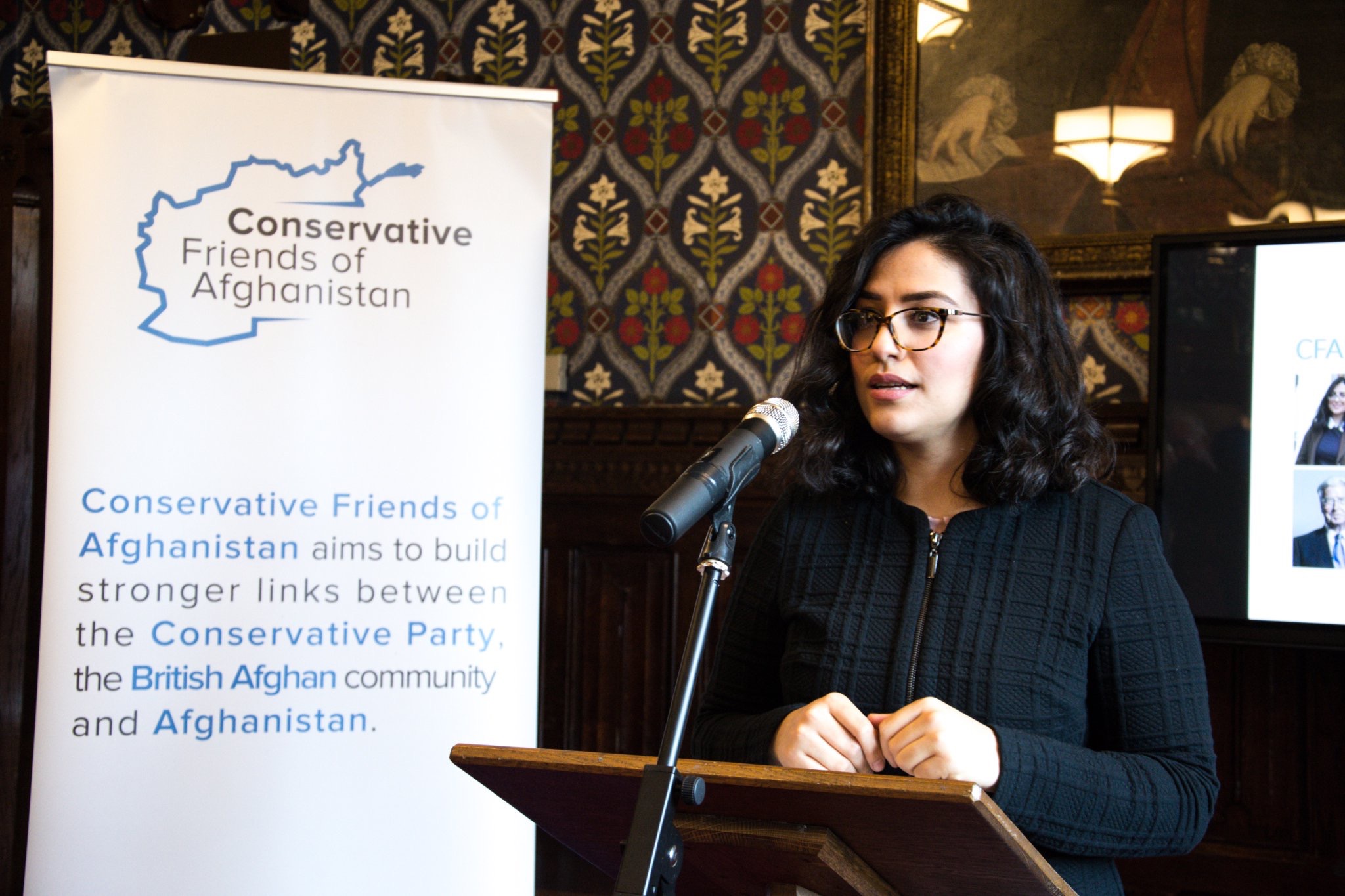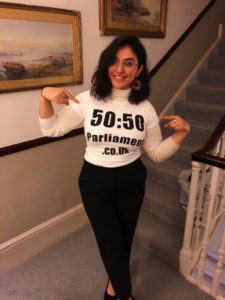Inspirational Woman in Public Affairs: Shabnam Nasimi

Date posted: 06/06/2019
Why did you set up the Conservative Friends of Afghanistan?
My father set up the Afghanistan and Central Asian Association to support the integration of refugees and asylum seekers into British society, through mentoring, counselling, education, community and social activities. The organisation bridges the gap between local communities and agencies.
Although I have moved on from the Association, I now volunteer and mentor women to help get them into work and education and develop financial independence. Many of the women I help have never been in education or work. They are often victims of domestic violence and abuse. I speak on the phone or meet them – they quite often do not have anyone else to speak to.
In my day job, I am a PREVENT Coordinator in Ealing Council, working to counter terrorism and radicalisation through the PREVENT strategy. This is where my passion for advocacy work has stemmed from. I have noticed that there is often a lack of cultural understanding from mainstream services and agencies. When you lack understanding of the culture or religion, it is difficult to understand the depth and complexity of the problem.
What are your plans for the organisation?
I will be using PolicyMogul to work on campaigns centred around women from BAME communities, particularly on employment and education opportunities. I want to help groups to access decision makers, to make sure their voice is heard in policy-making.
I would like to collaborate with other organisations and agencies, such as the British Refugee Council and Department for Communities and Local Government, to look at national problems; this is not a local issue, it’s happening across the UK. I want us to join up our thinking to create long term solutions.
What policies do want to campaign on?
I intend to campaign on supporting the integration process of minority ethnic communities in the UK. Today, integration is a popular idea. Most of us would like more of it. But politicians find it hard to turn words into action. There are good reasons for this. In a liberal democratic society, there are limits on how far the state can influence how we live together. But this laissez-faire approach can allow a policy vacuum to form, because government has not worked out what positive role it can and should play. I think it’s incredibly important to not just talk about why integration matters but to put in place an active strategy.
I also aim to work on a campaign to grant asylum seekers the right to work. Presently they are unable to provide for themselves and their families and often left to live in poverty. Lifting the ban would enable them to have the best chance of contributing to our society and integrating into our communities.

What is your biggest achievement?
I have changed the lives of women who I have supported, and through mentoring I have helped improve their situations. By sharing my skills, background and knowledge with women who have not experienced the same advantages in life, they have been able to flourish in education and employment.
What advice would you give to other women trying to make change?
Don’t ever let anyone tell you that can’t do something or stop you from addressing an issue that people feel threatened by. There are always individuals or communities that don’t think women should be doing things and we should break down those barriers and expectations that women face and there are many role models today who demonstrate this. Change doesn’t come easily but it is important to continue to pursue it. If you ever feel alone, there are lots of other women you can turn to and you can build networks of women that empower you. Try to always be that support network for other women.




